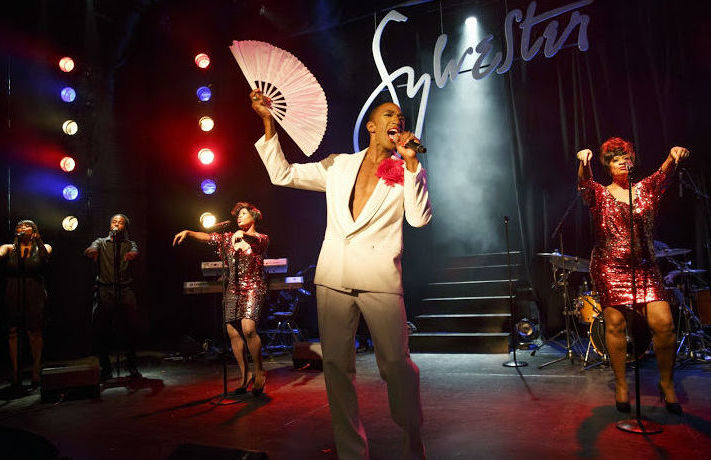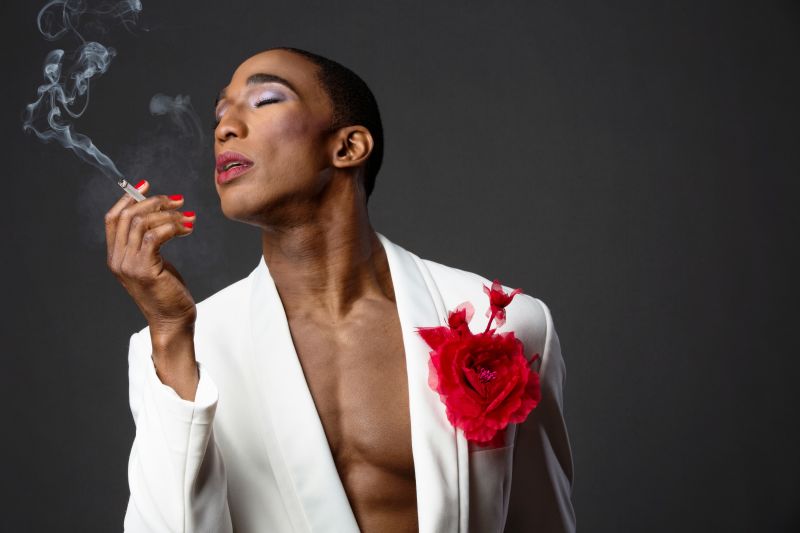There are so many images of salvation in art that we forget just how difficult they are to achieve—as if giving meaning to suffering could ever be easy. Catching the moment when pain turns transcendent and worthy of an audience—worthy of witnesses—is a strange alchemy.
Mighty Real, a sly and affecting jukebox musical about the androgynous, falsetto voiced disco crooner Sylvester, does just that. With the lightest of touches, the musical leads you into a world of casual cruelties and then shows you a way out, or at least one of which Sylvester might have imagined and approved.
Anthony Wayne’s book and Kendrell Bowman’s direction are a bit underdeveloped at times. But the whole of the experience is powerful and kind of amazing in its way. And what’s there is fully present and alive: Sylvester’s music, a whip sharp five-piece band, backup singers with monster voices, and the tawdry glamour of disco.
Right from the beginning, the show joyously taunts death. Sylvester’s disembodied voice announces that he died too soon, that “life is for the living,” and that he wishes for one more night “to shine under that great disco ball, one more moment to light up the night and set this world on fire!” And then he’s there, center stage, cat-quick in sparkles and fur. And you feel as if it happened: Sylvester has risen, alive and resplendent.
Like the New Testament and the lives of saints, Mighty Real chronicles an exceptional man’s life and death, and then somehow seeks to find inspiration and solace from both. Its melding of concert and biography takes the star’s hits and turns them into a set of propositions about the world—a philosophy of love and care that’s shocking in its ability to brush aside the most savage betrayals.



